The prison called "The State": Kazakhstan after the uprising - the fuel of wealthy repressors, rumors and martyrs
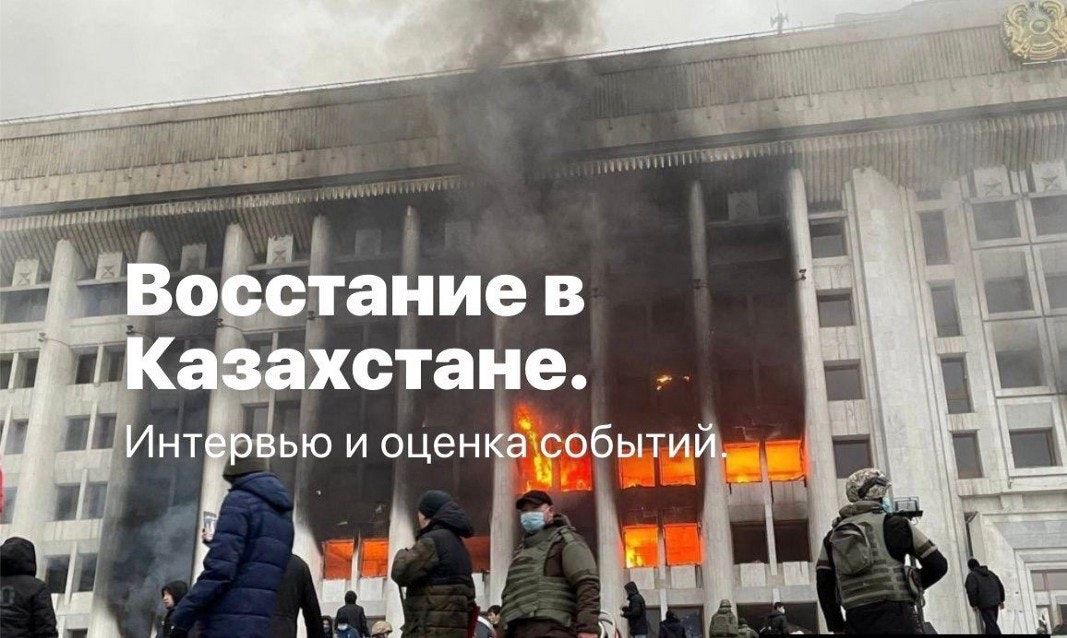
- Who are the people fighting in the streets?
- Who are the suppressors?
- Rumors are spreading all over the world, and official media in various countries publish false information. Who is benefiting from this?
- The ruling class is willing to commit political suicide to protect its position of power. What is the reason behind this?
- Is it really over?
- How did the majority of the people turn from slaves who relied on the government, fantasized about "the rise of the country" and longed for "social stability" to revolutionaries who risked their lives and fought hard?
- How do middle-class young people become political activists?
- …
Following last week's coverage of the uprising in Kazakhstan , the situation has been evolving. This article translates a range of perspectives on the situation from various Russian anarchist sources, as well as interviews with two anarchists from Almaty, Kazakhstan’s largest city and the scene of the fiercest fighting.
The article also includes never-before-published photos taken by contacts in Almaty.
It is hoped that all relevant content will help future actors in China gain necessary experience and lessons.
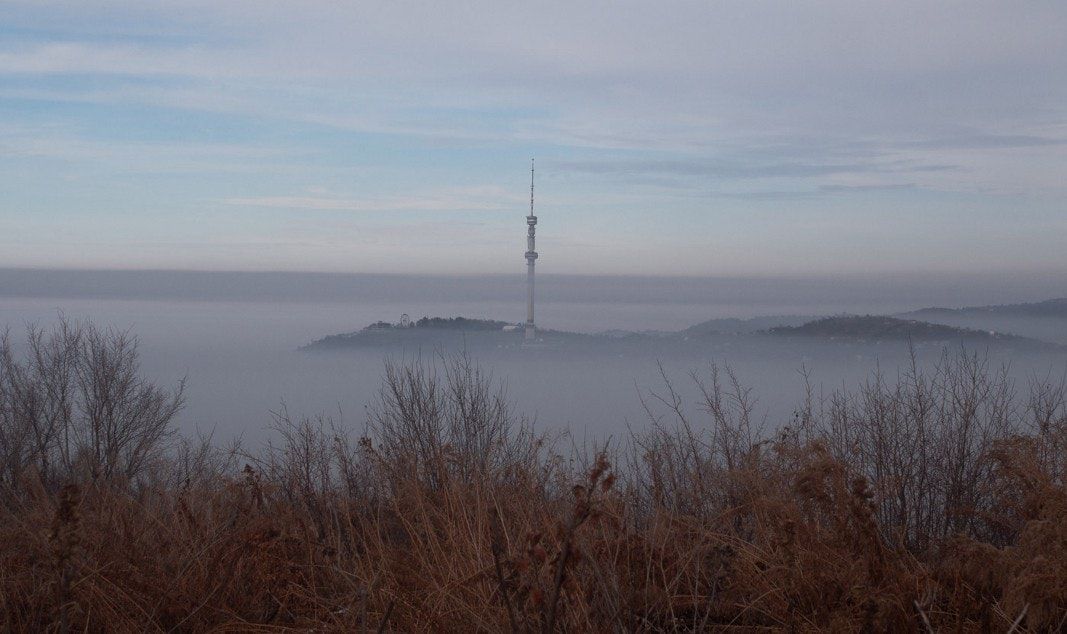
The following information should help refute any superficial misinterpretation of the uprising by misinformation published by the Kazakh, Russian, and American authorities, as well as by supporters who are misled by these information channels.
For those spreading conspiracy theories that the United States is trying to orchestrate a "color revolution" in Kazakhstan, we must point out that the protests were inspired by the removal of subsidies by the country's government for gas, which is profitable in Kazakhstan. Produced under a monopoly. Those who defend the governments of Kazakhstan and Russia are defending the repressive forces that are imposing neoliberal austerity measures on exploited workers in extractive-based economies.
The honorable position of all true opponents of capitalism should be to side with ordinary workers and others who resist the ruling class, and definitely not with governments that claim to represent protesters while shooting and imprisoning them.
This is not to say that the conflict in Kazakhstan represents a unified anti-capitalist struggle, nor that it represents a labor movement. The most credible accounts of the makeup of the protests acknowledge that there were a variety of different actors using different tactics to pursue different agendas. This is a mixed state. Of course, if we sympathize with workers protesting against the rising cost of living, we can also understand why the unemployed and marginalized might engage in looting.
A crisis like the uprising in Kazakhstan opens up all the fault lines in a society. Every pre-existing conflict is pushed to a breaking point: ethnic and religious tensions, competition among ruling elites, geopolitical jockeying for influence and power. We have seen this to a lesser extent with the Yellow Vest movement in France and the George Floyd uprising in the United States and its aftermath, although these crises did not develop in the same way as the uprising in Kazakhstan , where With entrenched authoritarian power structures, any struggle immediately becomes an all-or-nothing adventure.
If, as we argue , the protesters in Kazakhstan are fighting against the same threats we all face around the world , then the violent suppression of these protesters by soldiers from six armies raises the bar for what we all must problems faced. As economic , political and ecological disasters occur one after another around the world, such moments of truth have become almost inevitable.
How do we prepare in advance to maximize the likelihood of resistance despite all the forces working against us? In this moment of revolutionary potential, how do we pose transformative questions to the others with whom we make up this society, focusing the lines of conflict on the most generative and liberating axes, even as we have to contend with each other? A kind of "factional" competition aimed at focusing each other's own ideologies and interests? How do we avoid conspiracy theories and manipulation, defeatism and frustration?
In the following overview, composed in collaboration with Russian anarchists, I present an analysis of the Kazakhstan uprising that emerged in the former Soviet Union, and then share interviews with anarchists in Almaty after internet access was re-established following the crackdown. as well as views from Belarus, and statements of support for the uprising from Russian anarchists.
📌This article is divided into the following parts:
- This prison called "The State"
- “Wahhabis, terrorists, protesters” — countless rumors about the uprising;
- Spring delayed thirty years;
- From Zhanauzin to Almaty;
- Remember the fallen;
- Interviews: Eyewitness Testimonies of Almaty Anarchists;
- “Colonialism in the 21st Century” – a Belarusian anarchist perspective;
- Statement by Russian anarcho-syndicalists and anarchists on the situation in Kazakhstan
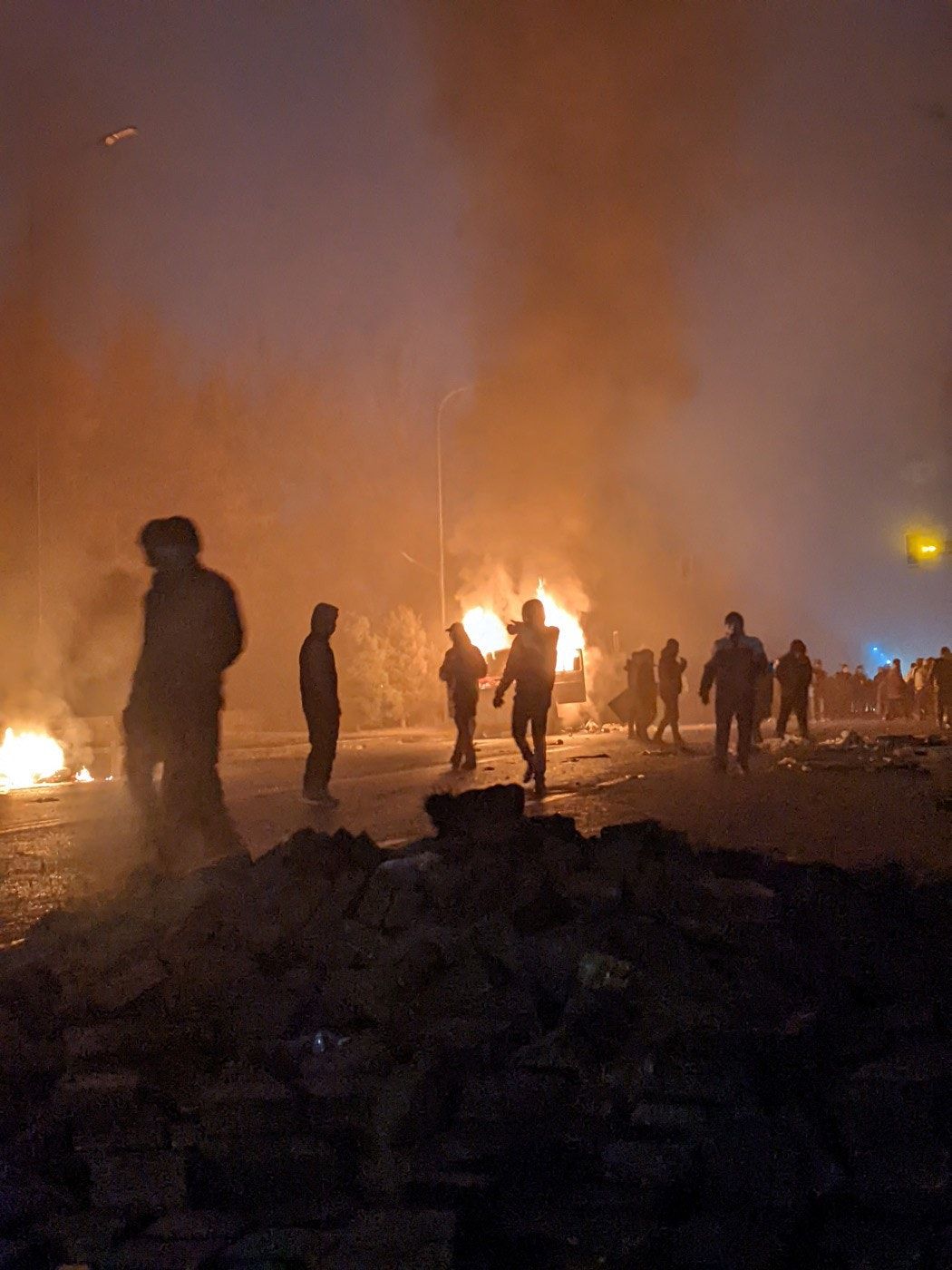
This prison called "The State"
What started as a protest against the rising cost of living on January 1 has escalated into a full-scale nationwide uprising, which has now been brutally suppressed by a combination of domestic and foreign military forces.
Initially, protesters demanded the resignation of the government, lower gas prices and the removal of former President Nursultan Nazarbayev - Kazakhstan's gray bishop - as chairman of the National Security Council. The national slogan these days has become "Shal ket!" (Old guy, get out). As the protests grew, people soon became disinclined to agree to anything less than a sweeping change in government, including ousting the current president, Kasim Kemelevich Tokayev.
The regime attempted to suppress the protests. However, protesters managed to seize weapons from police and fight back, looting stores and burning or occupying municipal buildings. President Tokayev declared a state of emergency and sent troops to deal with the protesters, ordering anyone who dared to resist to be killed without mercy. At the same time, Tokayev formally requested support from the Collective Security Treaty Organization (CSTO), composed of Russia and several neighboring countries, to regain control of the country.
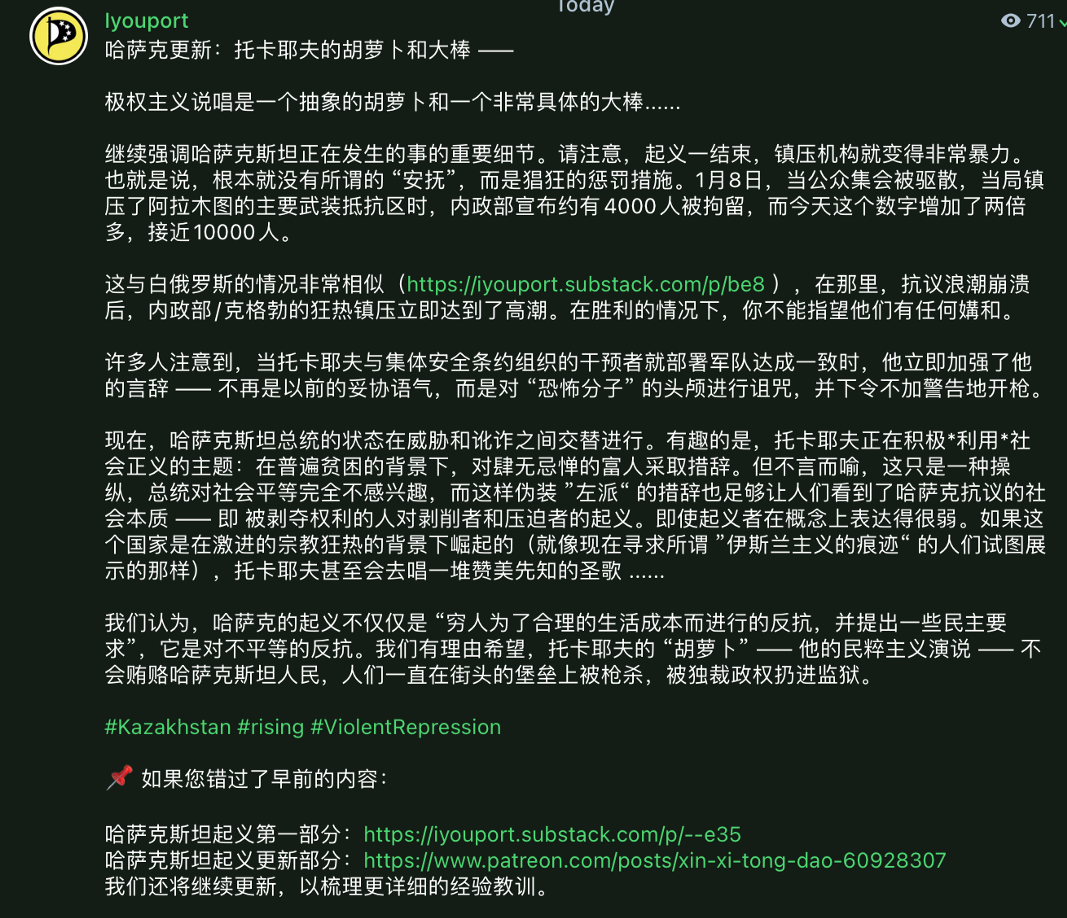
According to Kazakhstan's Interior Ministry, nearly 8,000 people were arrested during the demonstrations and at least 164 were killed; higher figures have since been circulated. A number of prominent bloggers and trade union leaders have been reported missing. The internet was shut down for several days. People were shot by snipers and other soldiers in squares and streets.
The military suppression of the uprising, including the military intervention of the Collective Security Treaty Organization, played a key role in the outcome. As of January 10, media reports and testimonies from the people of Kazakhstan showed that the fighting in Almaty had been forced to stop, and mass rallies in other cities had also been stopped.
The following is an analysis published by Anarchist Fighter, an anarchist platform from Russia, on its Telegram channel :
1) CSTO intervention - all more or less sane Kazakhs consider this an interference and attempt by "Big Brother" on their sovereignty. The presence of these troops in the country is increasing the feelings of disgust and anger every hour.
2) Authoritarian rule has not disappeared - President Tokayev concentrated more power in his own hands, invited foreign troops, ordered his troops to "shoot without warning"... but the people of Kazakhstan are not used to the government's Atrocities. That won't stop them, and dissatisfaction with the government won't go away.
3) The economic crisis will not stop without fundamental changes for social justice. The ostensible enforcement basically just delays the price increase. The ruling class has not proposed any measures to overcome poverty and reduce social inequality . Therefore, the dissatisfaction created by the ruling class will not abate.
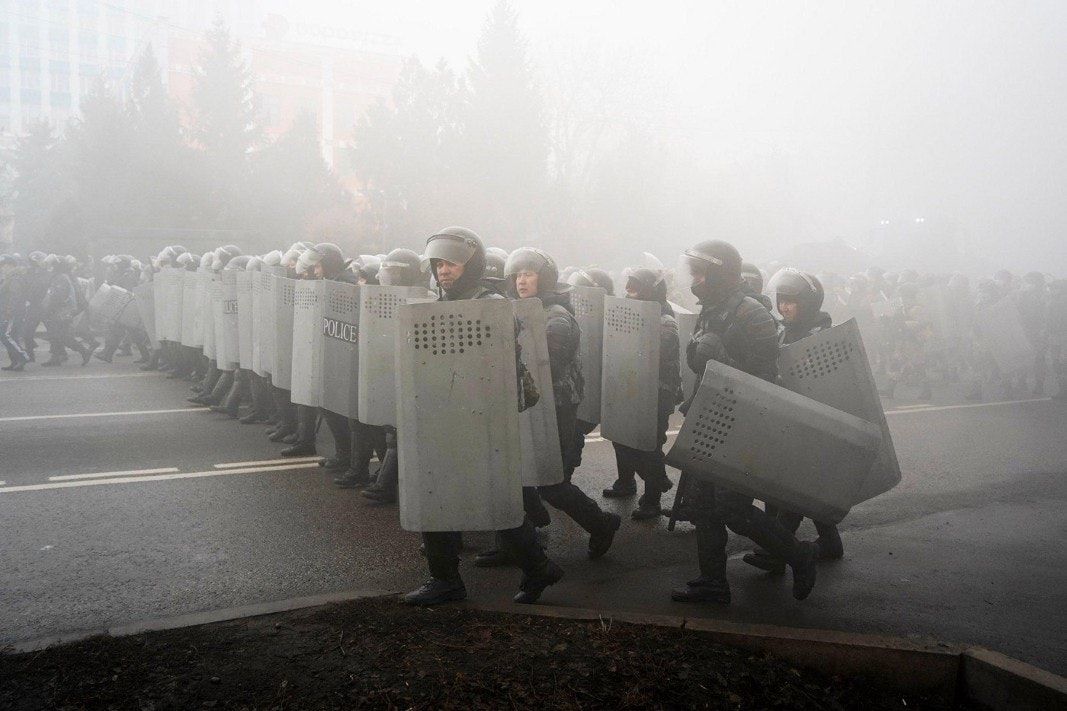
“Wahhabis, terrorists, protesters” — countless rumors about the uprising
According to avtonom.org ’s podcast “ Trends in Order and Chaos ”:
The Kazakh authorities are trying hard to save face and construct their version of reality. Punitive and violent crackdowns are called "anti-terrorism," as if anyone who violently opposes the authorities is a "terrorist." The revolutionaries were called "militants and bandits" and declared with gritted teeth that "they must all be killed", while the cause of the uprising was twisted into "free media and foreign powers", which is simply Tokayev's catchphrase . We watched this campaign unfold virtually live. The lie that black is white and war is peace. After all, no one feels sorry for the so-called "terrorists," a mantra learned well by post-Soviet dictators.
From the beginning of the fighting, both local and foreign media in Kazakhstan made claims about the identities of the protesters. Definitions range from "protesters," "aggressive youths" and "looters," all the way to "nationalist troops," "the 20,000 bandits who attacked Almaty" and "Islamic terrorists." It is true that various groups and factions participated in the uprising, but this is not a problem in itself - the entire society is represented in the uprising, with all its differences and contradictions. It is believed that different individuals were involved in different actions against the regime, including fighting and looting.
Message from " Anarchist Fighters ":
Journalist Maksim Kurnikov said something very interesting on Ekho Moskvy's morning broadcast. He said the plan to "take weapons from gun depots and then attack suppressive forces" was not new in Kazakhstan.
The exact same thing happened in the city of Aktobe in June 2016: dozens of young people divided into groups, took weapons from two gun shops, seized vehicles and attacked a section of the National Guard, who Defeated there. Kazakhstan authorities have been confused in their handling of the case. The exact basis of the authorities' claims of "links to Islam" remains unclear until now.
Kurnikov also spoke of the paramilitary guards at illegal refineries in western Kazakhstan, who are made up of local villagers, contemptuously called “mambets” (cooperative farmers) by fellow Kazakhs. These groups have also sometimes engaged in armed confrontations with police.
What does all this information tell us? Of course, what President Tokayev said about "terrorist organizations carefully trained abroad" is purely political slander and is probably a serious lie. On the other hand, the sudden emergence of armed groups capable of seizing repressive institutions and arsenals from a motley crew sounds beyond imagination. That is, we have no evidence that Islamists or nationalists were involved in the events in Almaty; however, as we have seen, there are in principle organized groups within Kazakh society capable of active armed resistance. It is likely that those who confront the repressive forces directly are partly representatives of these groups and partly spontaneous self-organized protesters. There are similarities with the 2014 Maidan [ protests in Kiev ], where the defense was both spontaneously organized by the masses and with the participation of organized radical groups who joined it.
The suggestion that Islamic fundamentalists were involved may be true to some extent. However, it is equally certain that the authorities will use any information about them to discredit all other groups and participants of other identities involved in the uprising. Economic despair and social and political persecution often drive people toward fundamentalism and other forms of radicalism.
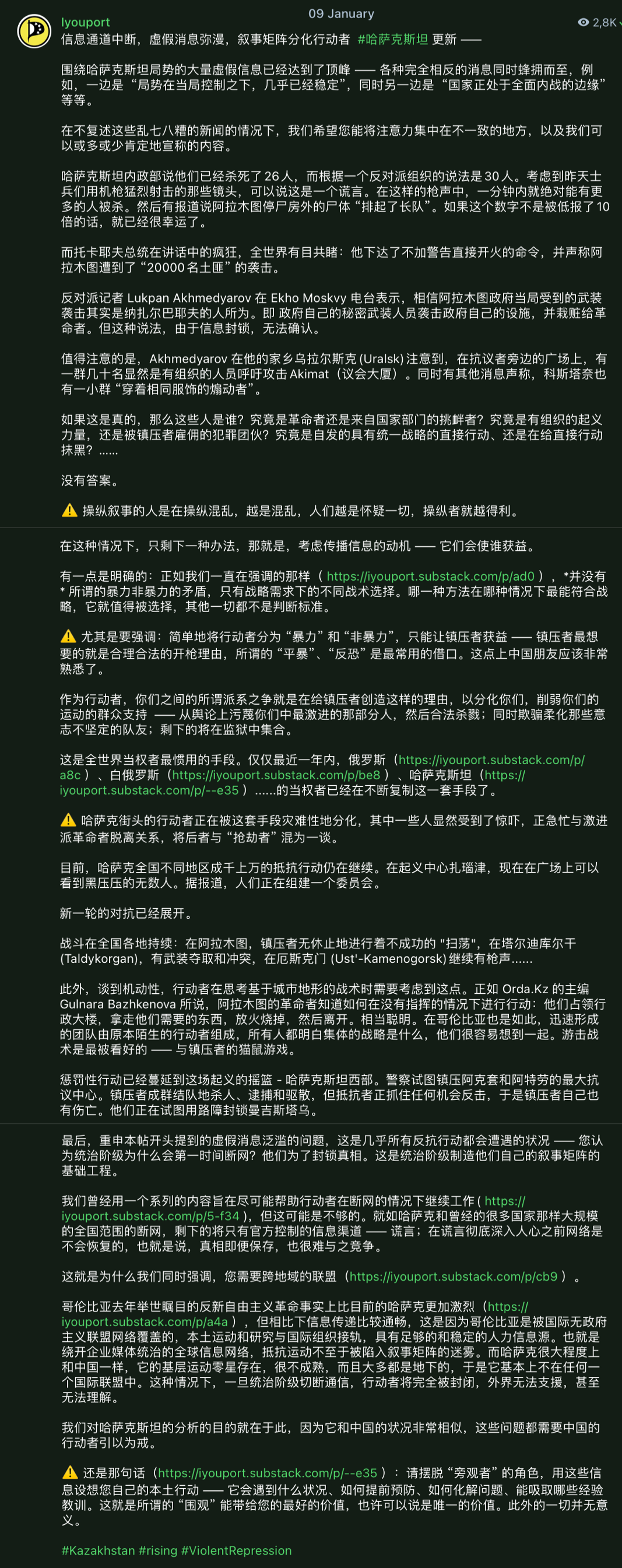
Various rumors about conflicts within Kazakhstan's power structure and speculation about the geopolitical agenda of the uprising may be true; but elevating these rumors and speculation to a central position in the narrative about what is happening in Kazakhstan is absolutely is a political choice: a decision that denies countless ordinary people, for their own reasons, participation in the uprising. Like all conspiracy theories, this assumes that the only competent people in this situation are shadowy global power players; it also serves to distract from obvious events that everyone knows are happening, such as Kazakhstan’s political elites profit at the expense of everyone else’s experience.
Rumors and speculation help to influence the event itself and the way others understand and engage with it. Whether true or not, these interventions serve to focus attention on certain characters and propagate a certain set of assumptions about how the world works. If these conspiracy theories cast doubt on those involved in the uprisings enough to divert attention from supporting the protesters who stood up for their own survival against economic exploitation and political domination, then they have succeeded in making people around the world people rely on political elites for their own purposes.
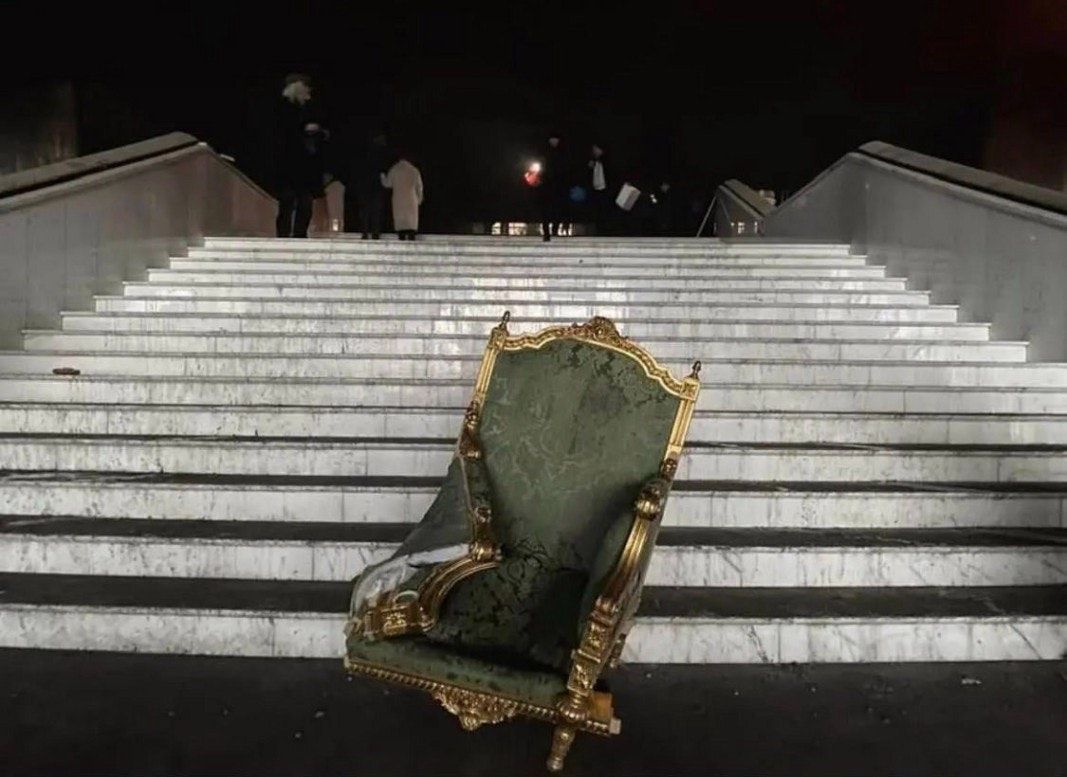
Tokayev himself did not hesitate to present the most outrageous narratives , claiming that the alleged "international terrorists who led the rebellion" could not be identified because their bodies had been stolen from the morgue. According to " Anarchist Fighters ";
This is like claiming that even if a terrorist is dead, it cannot be seen by the public. Their comrades kidnapped the dead directly from the morgue!
On top of that, the Kazakh authorities shamelessly publicly stated that radical demonstrators dressed up as police and soldiers (!!) to the point that any atrocities committed by the repressors can now be blamed on the revolutionaries themselves. Maybe the protesters were shot by those "pretenders"? If it were now discovered that children and journalists were shot by men in uniforms and epaulettes - then people would say: of course it was the disguised "rioters" who did it, and not the brutal executioners of Tokayev's special forces. .
In addition to the question of who participated in the uprising, it is important to ask: who benefited from the suppression of the uprising. As one review put it :
Putin is not a nationalist but a guarantor. He guaranteed the safety of the post-Soviet elite and the safety of their property. He used to guarantee this only in the Russian Federation, but now it seems that he guarantees it in Kazakhstan as well. After all, there is Russian capital there too.
Just look at Kazakhstan’s Forbes list. The real beneficiaries of so-called "peacekeeping operations" are listed there. By the way, this list is an interesting international list. The first two rows are occupied by the Kim family's Kazakh Koreans. The first is the majority shareholder of KAZ Minerals, a "British copper company" as Wikipedia describes it. In 2021 alone, his wealth increased by $600 million. The second Kim, along with Baring Vostok, owns one of the major Kazakh banks, Kaspi Bank, which also trades in London and has shown impressive growth despite the pandemic. . In the third place, I was surprised to find Lomatdze, a Georgian citizen who is also the co-owner and manager of Caspi Bank.
Then there was a man named Bulat Utemuratov, who specialized in foreign trade in the Nazarbayev government in the 90s. He owns ForteBank, which had net income of "up to 53.2 billion tenge" ($121 million) in 2020, as well as a major stake in the major mobile operator, a 65% stake in RG Gold Mining and a range of other assets, including the Burger King franchise Right and “The Ritz-Carlton Hotels in Nur-Sultan, Vienna and Moscow”…
The fifth and sixth spots are shared by Nazarbayev's daughter and son-in-law. His son-in-law Timur Kulibayev owns "a controlling interest in Steppe Capital Pte Ltd in Singapore", which owns KazStroyService Infrastructure BV and Asset Minerals Holdings (Caspi Neft JSC, 50% of Kazazot JSC).
Nazarbayev's daughter Dinara Kulibaeva owns Kazakhstan's Halyk Bank with her husband - which has a "market capitalization of £3.1 billion ($4.3 billion)" . Ranked seventh is Timur Turlov, a Russian financial speculator and founder of the "American investment company" Liberty Holdings. “According to the company’s financial statements, its assets tripled in 2020 to $1.47 billion (from $453.5 million in 2019) and equity almost doubled to $225.5 million (from $131.3 million), Net income jumped 10 times to $42.3 million."
there are more.
And on the other side of the barricade are all the people who either work for all these "beautiful worlds" for $300 a month (this is about an estimate of the median salary in Kazakhstan), for "British" and "Singaporean" companies Those who mine minerals either serve their fellow citizens in the service sector, which also belongs to everyone on the list, or those who do not find work at all in large and medium-sized enterprises, their income can only be guessed at (supposedly lower). Workers concentrated around enterprises demanded social security (lower water and electricity prices, free medical care, higher wages, etc.). People who are not even workers are just trying to get their own base of survival from retail chains and banks through broken windows and looted stores.
Considering that workers will certainly be abandoned once the heat subsides, workers' behavior *cannot* be called irrational or unfair.
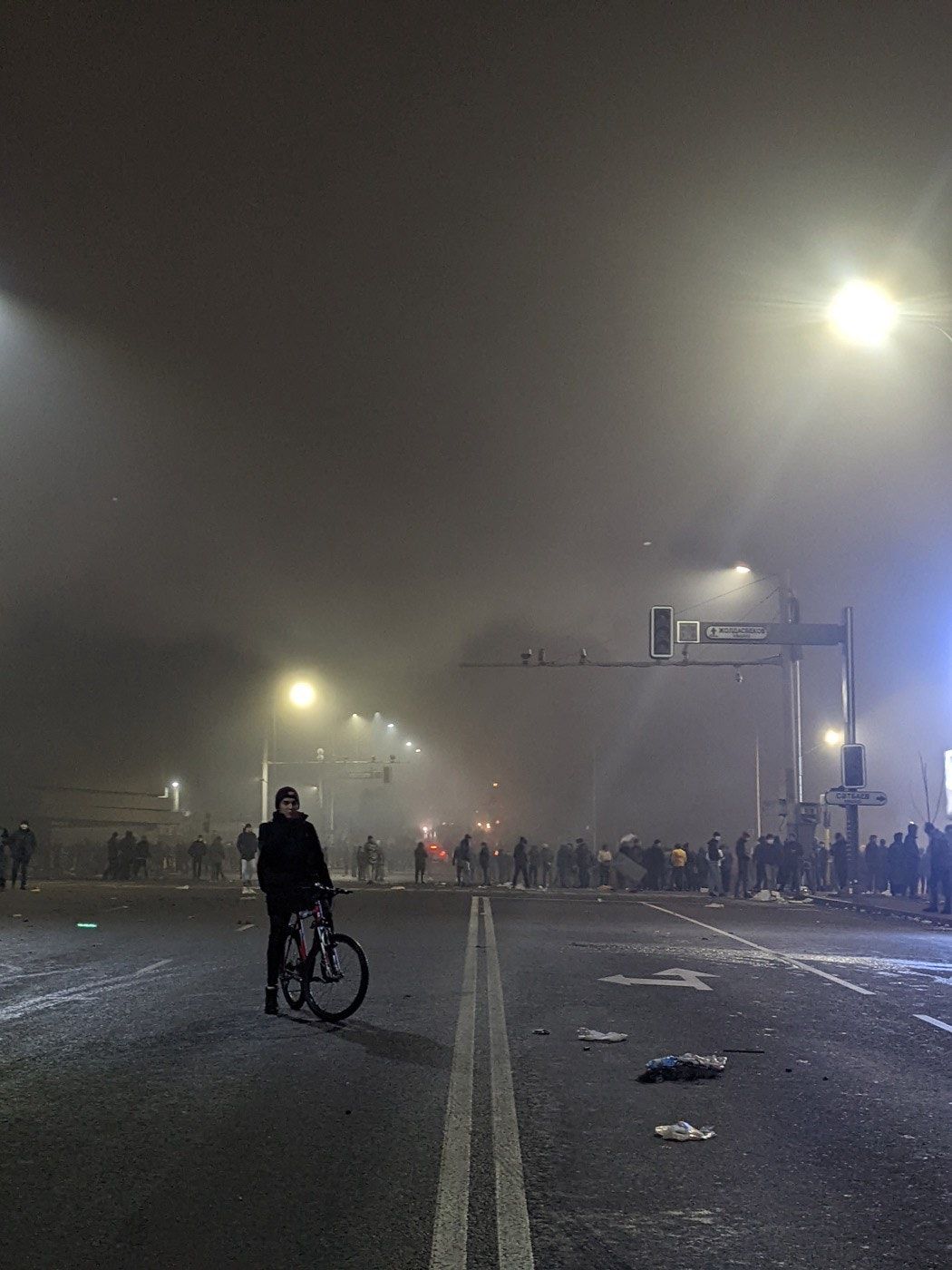
Spring delayed for thirty years
Likewise, according to avtonom.org podcast;
The Kazakh authorities and President Tokayev began by distrusting their own police and government institutions. The police and military had begun to side with the insurrectionists, and it became clear that various outcomes were possible. In this case, Tokayev decided to take the last extreme step - to bring in suppressive troops from neighboring countries. It was political suicide: in fact, he admitted that he was at war with his own people, even with his own state apparatus.
The situation in Kazakhstan escalated very quickly — not just the protests, but the brutality with which they were suppressed. The fighting in the streets is the result of decades of testing the patience of the Kazakh people. Kazakh society has seen street fighting and shootings before - in 1986, for example, Mikhail Gorbachev's government suppressed an uprising in Almaty with a massacre; and in 2011 In 2001, police shot striking workers in Zhanauzin, killing dozens.
When the first news of domestic military intervention broke, it did not appear to be a major setback for the uprising. The street fighting did not stop; on the contrary, it continued to intensify. We have seen videos of disarmed soldiers in crowds welcoming these pillars of power to change sides .
Then, the internet was shut down. The official reason for the disconnection was to "prevent terrorists from various countries fighting in Almaty from coordinating with their headquarters." This has resulted in a severe lack of information from where the uprising took place, making events more susceptible to manipulative representation or distortion. In an age where everything is filmed, photographed, uploaded and shared, cutting off social uprisings’ means of communication helps erase them from reality, providing space for disinformation to thrive.
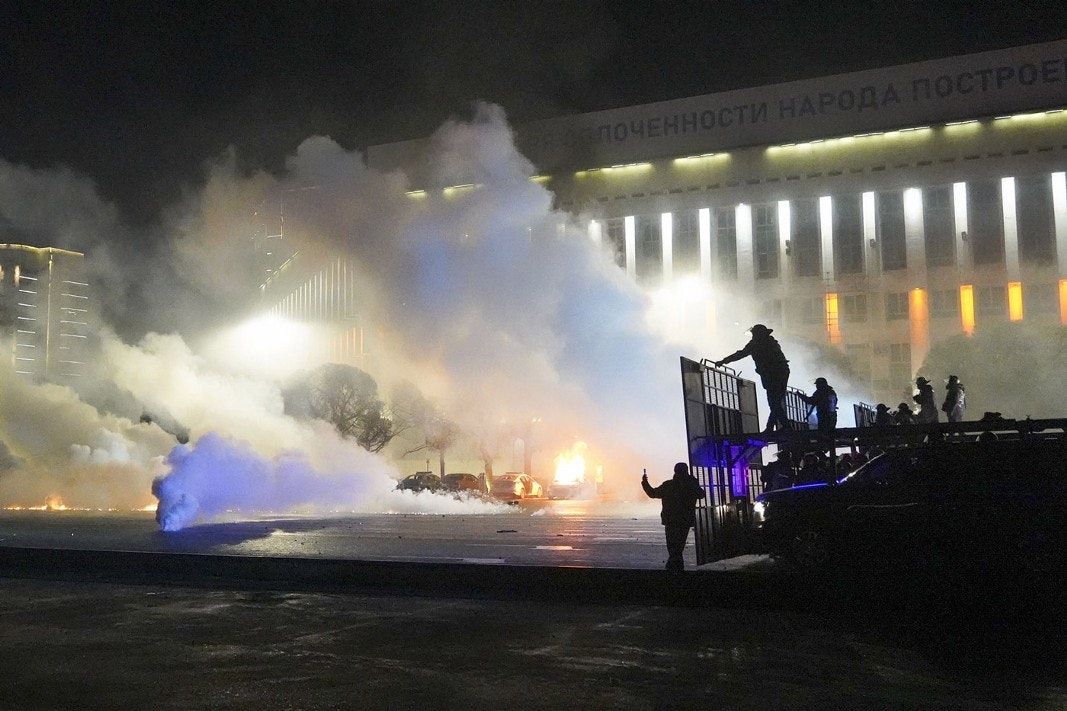
However, one of the most important events occurred in plain sight: the CSTO intervention. This suddenly caused many conflicts. Officially designated as "CSTO peacekeeping assistance," it includes up to 200 troops from Armenia and Tajikistan, as well as 500 repressive troops from Belarus dispatched by dictator Lukashenko (who just recently suppressed an uprising in their own country), an unknown number of Kyrgyz soldiers, and 3,000 soldiers from Russia. Importantly, the Russian paratroopers transferred to Kazakhstan were commanded by Anatoly Serdyukov, who had experience in the Chechen war, the annexation of Crimea and the war in Syria. We can see Russia's imperial activities on full display here.
In Kazakhstan, the regime is trying to stay in power by any means necessary, even inviting autocratic regimes from neighboring countries to invade. For the people of Kazakhstan, this should mean the ultimate loss of any legitimacy Tokayev might have had in their eyes. Everyone in the region can see that the CSTO represents the unity of their governments in the common resistance of their people.
According to avtonom.org :
A president who refers to his country's people as a "terrorist gang" is an absolute low point even by the standards of post-Soviet authoritarian "republics."
In effect, it is invading another country by force on the side of an authority that has lost the trust of its people. This would mean an endless recurrence of the "Russia as a state prison" scenario, juxtaposed with the suppression of the Hungarian revolutions in 1848 and 1956, the tanks on the streets of Prague in 1968, and the invasion of Afghanistan in 1979. '.
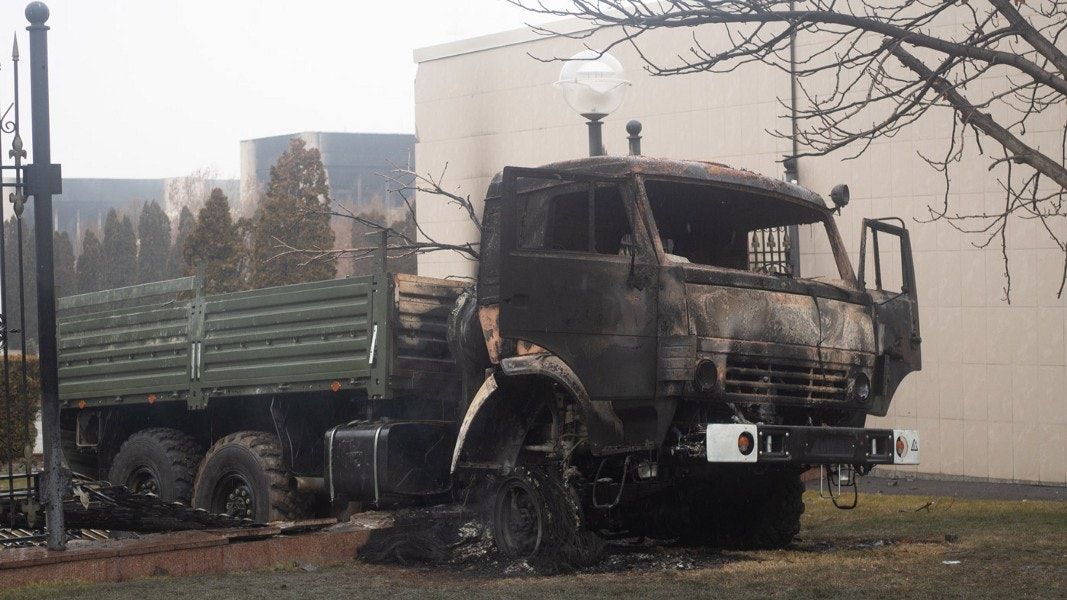
From Zhanauzin to Almaty: remembering the victims
From "Anarchist Warrior":
The current uprising in Kazakhstan began with protests in Zhanauzin. In December 2011, authorities shot dead a large number of striking oil workers in the same city. Zhanauzin’s tragedy left a deep mark on Kazakhstan’s protest culture. People have always cherished the memory of the deceased. The duty of the living is to continue the work of the sacrificed.
And in January 2022, Zhanauzin rose again. The first city in the country to revolt, it set an example for all other cities. The official reason for the protest was rising gas and food prices. But, as Mikhail Bakunin pointed out, mere dissatisfaction with material conditions is not enough for revolution; a mobilizing idea is also needed. In Kazakhstan, one such idea is loyalty to the fighters who died in 2011. The workers who died under a hail of bullets at that time will never see the world they dreamed of, but dying for their dreams became proof that the living continued their careers. Therefore, there is now no retreat for the revolutionaries in Kazakhstan.
There is much to learn from Kazakhstan’s rebel culture. We must also preserve the memory of the martyrs of the Russian and Belarusian liberation movements. About Michael Zhlobitsky, Andrey Zeltzer, Roman Bondarenko and other heroes. Their deaths make us braver and stronger, and we are grateful to them. We must tell how they lived and what they gave their lives for. As the events in Kazakhstan show, martyrs who die can arouse people's resistance. Martyrs are the fire of revolution.
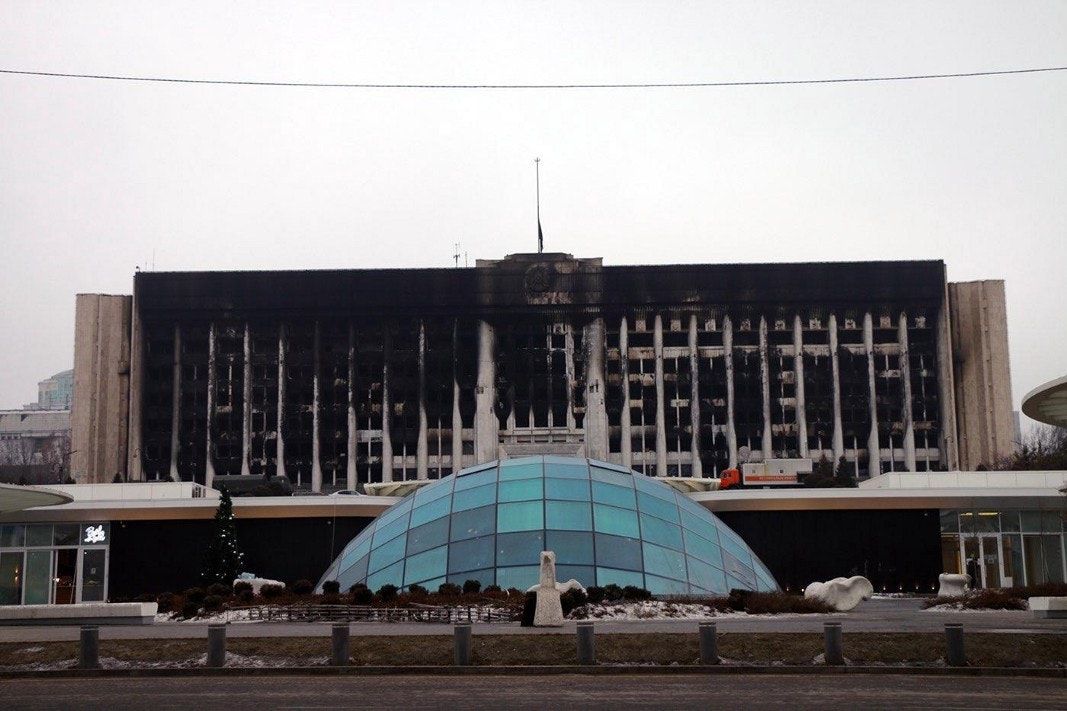
Interview: Eyewitness Testimonies of Almaty Anarchists
To gain more perspective on events in Kazakhstan, we contacted two anarchist feminists who witnessed some of the uprising first-hand. They were not on the front lines of the conflict, but they were well-known activists and had been involved in feminist organizing in the city for many years. So they are the closest we can find to a "neutral" position on the matter.
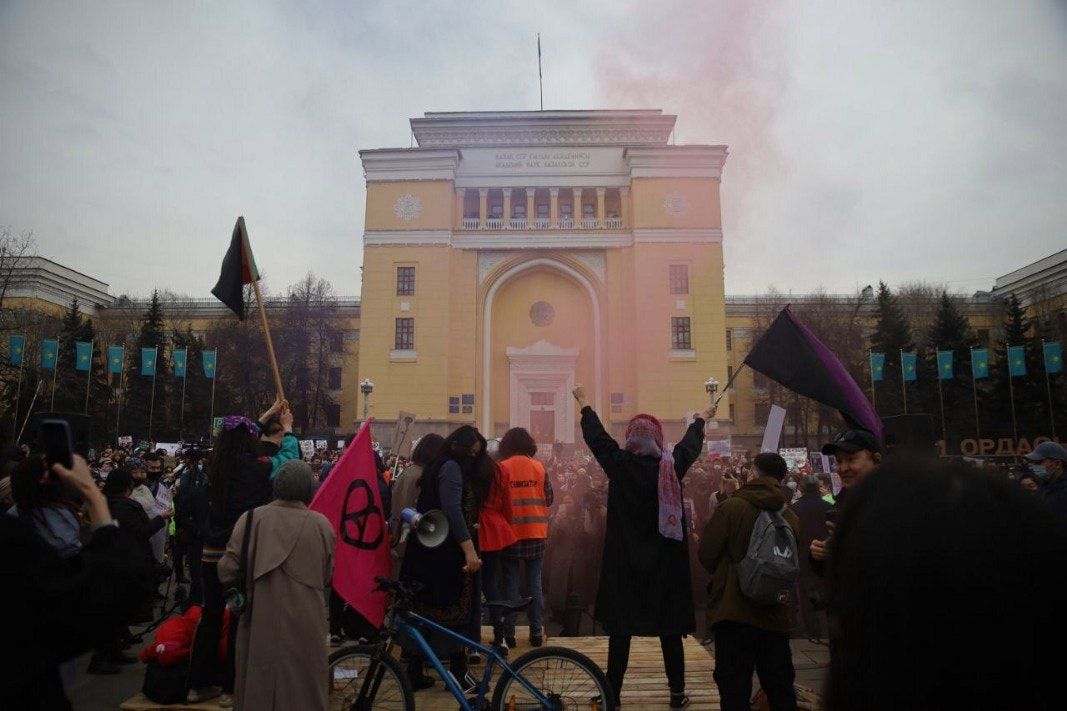
Q: Tell us about yourselves and the situation you are in?
A: We are anarchists from Kazakhstan, both she/he. Over the past 11 years we have participated in many left-wing anarchist-feminist-eco, animal liberation, vegetarian events in Almaty, but currently we are not that active.
I cannot name the anarchist movement in Kazakhstan in the 21st century. There was some underground activity in the 1990s, but as of now, no such activity exists. I was involved in a left-wing Marxist group: conferences, reading groups, some public lectures. I don't know what the former members who are still here are doing now. I haven't heard of any "left-wing" groups here.
I was one of the organizers of one of the first feminist movements here – Kazfem. We organized many public events and performances, published a feminist magazine called Yudol' and organized demonstrations for March 8 [International Women's Day].
There is a youth libertarian movement called Oyan Kazakhstan ("Wake Up, Kazakhstan") that is now active. They organized public meetings, performances, and marches and were often harassed by the police. It started after the banner action of Bebaris Tolinbekov and Asya Turesova at the city marathon in 2019. They were imprisoned for 15 days, which generated a wave of attention, especially on social media, that had not been seen before. There is a conspiracy theory that all these activists are pro-government because no one is in jail right now, but I don’t think that’s true. I know many of them. They also support feminism and LGBTQ activities. On the opposing side, mainly haters on the internet and some government media) people claim that all of this is the work of the "West" (Europe and the US).
Kazakhstan is a dictatorship. We have only had one president [Nursultan Nazarbayev] for 28 years, and the new president [Hasmut-Zhomart Tokayev] is just a puppet. But when the first president resigned, people began to think about change. The cult of personality surrounding Nursultan Nazarbayev did not disappear after his resignation. The capital, Astana, was renamed "Nur-Sultan", prompting many protests. The economic situation has been deteriorating over the past few years, especially after the pandemic, with very high inflation, rampant corruption, and more. Additionally, there are many people selling and leasing our land to China and other countries.
That's always been the case - but a decade ago, or even five years ago, there were far more people loyal to the president and fearful of social "instability." At that time, people hoped that Kazakhstan was "developing" and imagined that things would soon get better.
Even during the 2011 Zhanauzin incident, when protesting workers were shot dead, there was very little support in Almaty. Many people believe that what happened there was "right."
Previously, if there were any protests, they were organized and supported by the older generation, workers and people from various regions, villages and towns, often led by the shadowy exiled leader Mukhtar Ablyazov Ablyazov) leader. But in the past three years, young people from the urban middle class have become political activists. Mainly people from Almaty, but there is support in other cities as well.
By the way, I think the ecological problems in Almaty – we experience extremely high pollution levels here, and they get worse every year – are a big reason for the youth protests here . Except, of course, the growth of social media.
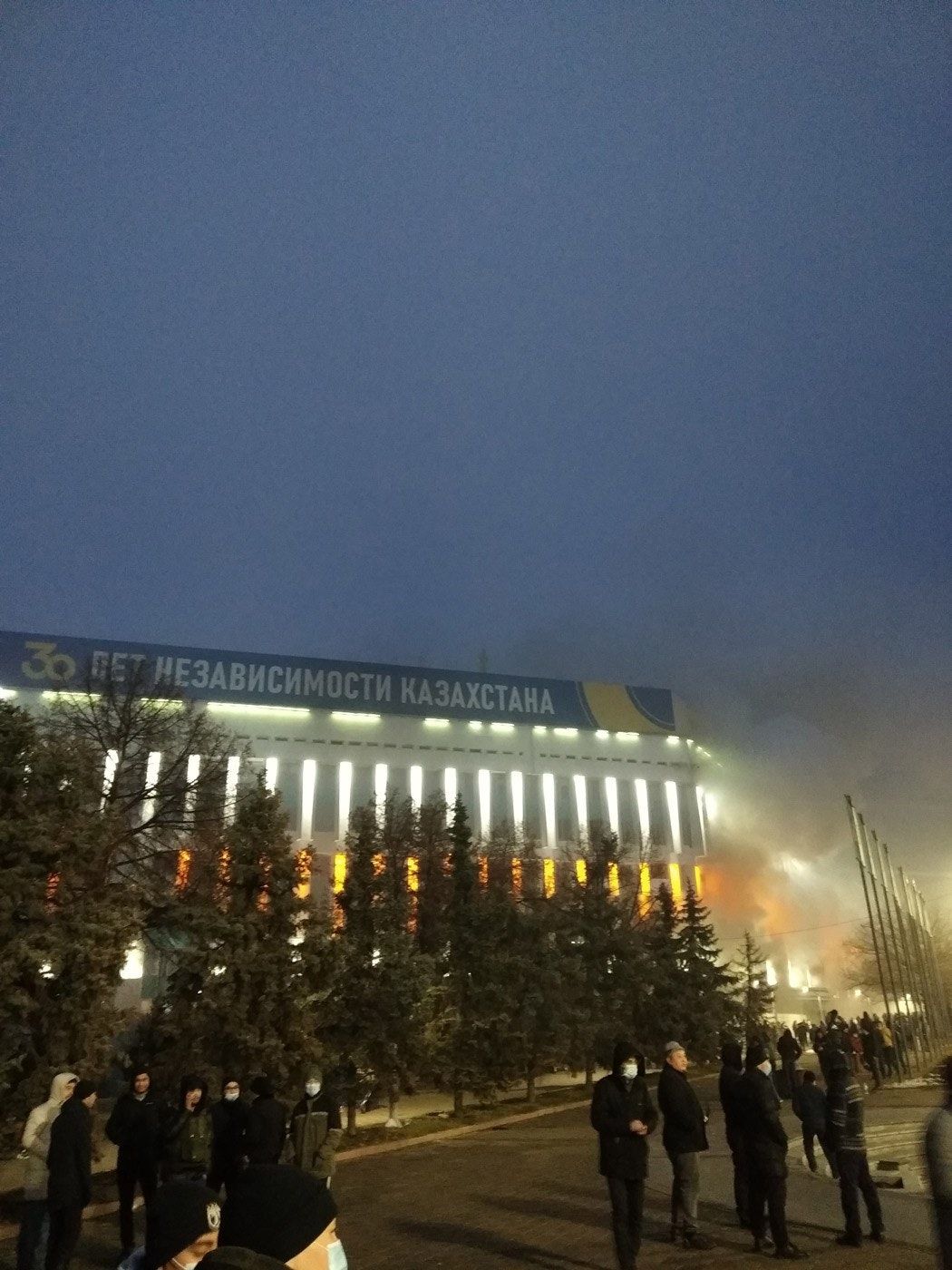
Q: What did you experience in Almaty last week?
A; Shortly after the New Year, news began to spread that workers in Zhanauzin were revolting. The protests have been peaceful, but the demands have been quite radical - ranging from lower gas prices to the resignation of the government. Protests have also begun in other cities. People know that there will be a solidarity action in Almaty on January 4th, but I don't have exact information.
On my way home that day, I learned about the protests in different parts of the city and the arrests of activists from [the aforementioned youth freedom movement] Oyan Kazakhstan. I lived in the mountains not far from the city, and it was already clear at home that something serious was happening. At night, all internet connections were down. I didn't know where to go or if I could come back.
Regarding what happened in the city during that time, my comrade-in-arms and political journalist Daniyar Mordabekov wrote :
As demonstrators approached the square, police began firing stun grenades and tear gas. I and thousands of others choked, our eyes and faces stung, and we coughed. It's a miracle I didn't faint. They must have fired over a hundred stun grenades from 11pm to 4am, at which point my colleagues had to send me home. I could still hear the explosion in my apartment.
About an hour after the crowd arrived at Place de la Repubblica, they headed to Rue Abai. There, they faced an armored personnel carrier heading toward them. A truck drove by carrying citizens waving Kazakh flags. Some of them carried shields, which they appeared to have snatched from riot police.
People could hear explosions throughout the night. For a time I refused to believe it. I saw this news on mobile phone news this morning. I called everyone for a long time and heard about the victims and the arrested activists. Internet access is only possible at some friends' homes. The City Hall building was occupied. Everyone is telling us to stay home. Some people became scared due to speculation that the protests might have a nationalist character (I am ethnic Russian in Kazakhstan).
There was no information at the time about who exactly was on the square or in the city. My friend and I decided to check it out for ourselves.
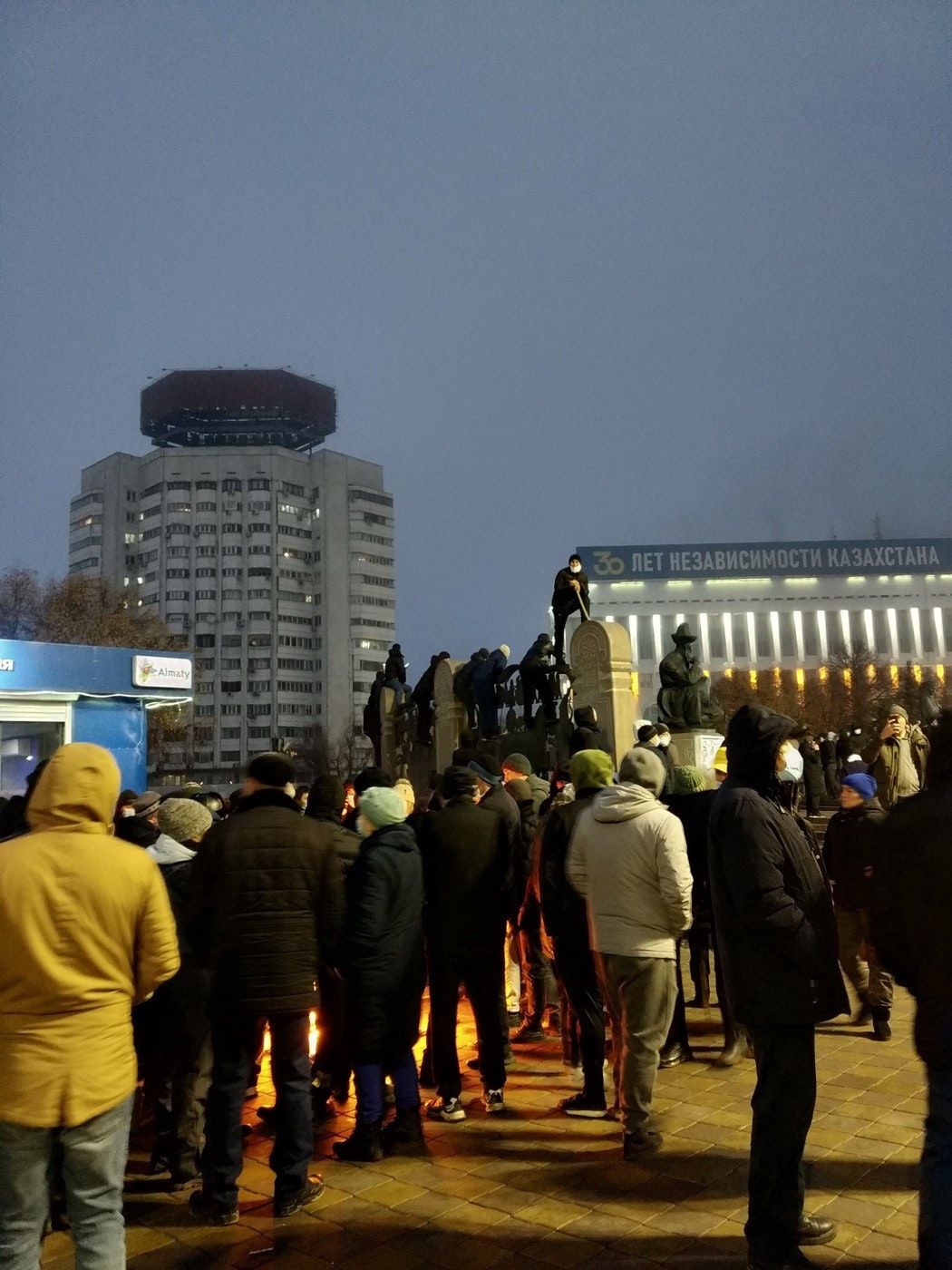
The city is half empty. Cars flying Kazakh flags drove through the streets shouting cheerful slogans. Everything is closed. A sign on the door reads "We are with the people." An atmosphere of excitement. As we got closer to the square, there was a bigger crowd of younger people there. I saw a police officer's shoulder strap thrown on the road. Some people are gathering with sticks. It was getting a little scary, but nothing aggressive was seen. In front of the monument to the events of 1986 (the uprising against the Soviet power) we met protesters holding police shields. No police or soldiers were seen.
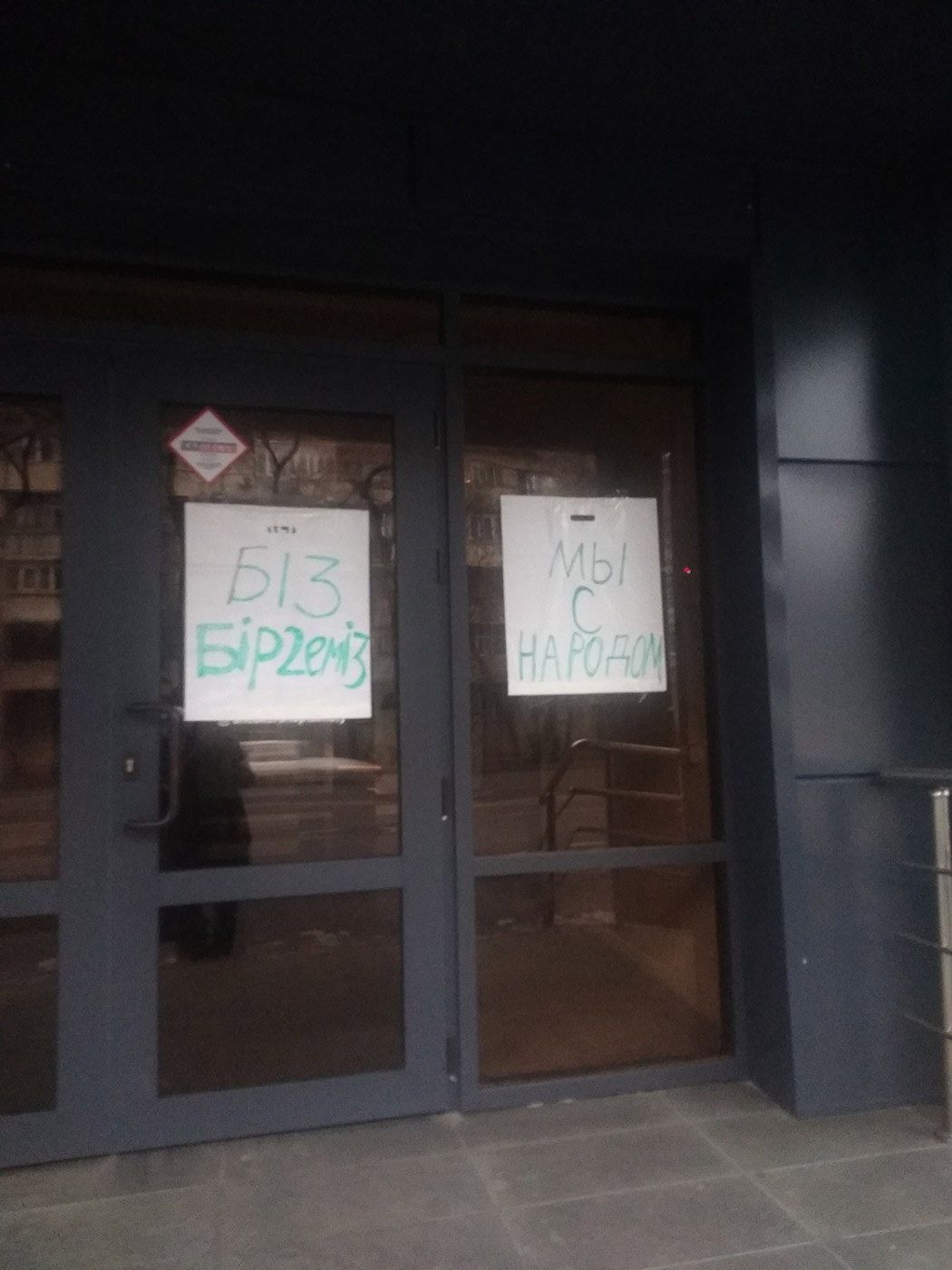
Then we see the Capitol burning. We couldn't believe our eyes. Everyone is calm. They broke down the door of the building opposite the Capitol. There are TV channels and other government services. The men came up to us again: "Why are you here?" (They meant - why are you Russians here?)
I replied: "This is my city and country and yours too". They greeted us cheerfully. We didn't feel any aggression from them.
We offered hot tea to the protesters. The man told us he had been at the protests from the beginning — everything started peacefully until authorities started setting off flash bang grenades and using violence.
"Now, they are shooting combatants," he said. The guards remained only near the Capitol.
He and others there saw someone shot in the head. They called the taxi company and loaded the injured man into the car and took him to the hospital. He told us that they planned to seize the airport so that Russian troops could not land there.
Many senior government and business figures from the bourgeoisie have left the country on private flights. There are rumors that Nazarbayev has also left the country.
None of the people we saw in the square looked like the so-called “predators” [sic].
They want the government to resign. They were not following orders; no one was co-opting them. This was a national labor uprising. No one is afraid of death, but we don't see any anger. They showed us the damage caused by rubber bullets and warned us that there would soon be serious shootings and that we'd better leave.
The explosions and gunshots were getting closer and more frequent. We left. A man gave us a ride in his car. In those days, people supported each other.
My friends and I decided to stay at my house together. We are all very excited. There had been no news of destruction, looting, or civilian casualties. At midnight on January 5th and 6th, all internet connections were shut down. For four days we were cut off from the rest of the world; we could only make and receive phone calls, and the only remaining channel of communication was not easy to use.
That night, all services throughout the city were abandoned, including the fire department and medical services. The fire was put out entirely by volunteers. In addition, some protesters and volunteers tried to stop the "bandits".
On January 7, only some shops and ATMs far away from the city center were still operational. In that part of the city, most things are clear except for the burned government buildings around the square. Some service departments work there. The day before, we had been able to enter these buildings; no one was guarding them. This time, we took some photos and then a gunshot was heard nearby and we left the area.
On the evening of January 9th, Internet connectivity was available through a proxy service. Cell phone connection still doesn't work. On the morning of January 10, connections everywhere were functioning normally, but only until 1 p.m., and then from 5:30 p.m. to 7:30 p.m.
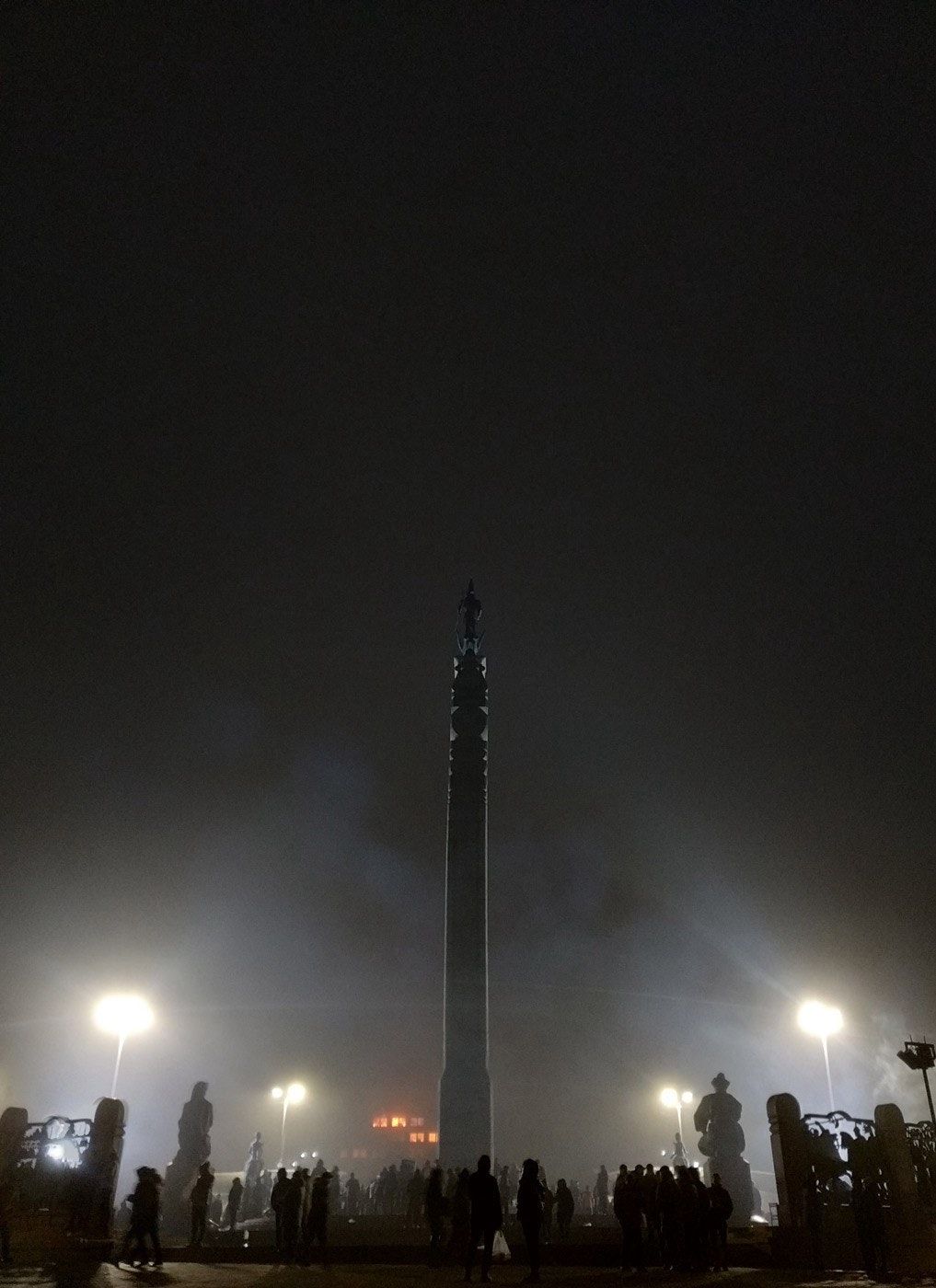
Q; There is a lot of discussion outside Kazakhstan about who is “behind” the protests. Do these accusations have any credibility? We have also seen some news reports that conflicts between rival factions within the authority are also responsible for this situation. How involved do you think Islamic fundamentalism was in these events?
A: Despite rumors about President Tokayev's retirement, in fact he is still in power. Government TV channels and media are now spreading a lot of false information and political propaganda. It's too early to tell, but some things are clear.
It all started with a popular uprising. Yes, they burned down the Capitol, but no one led them to do so. They just want the old regime to disappear. They are not "criminals" [sic].
After the uprising began, some other forces emerged. We don't know who they are. But they are organized. But who organized it? There are a lot of rumors about this now. Some state media said they were from [neighboring] Kyrgyzstan, which has seen several revolutions since its independence [like Kazakhstan, Kyrgyzstan became independent when the Soviet Union collapsed in 1991]. These media outlets are also spreading stories about the Taliban or jihadists. People I know say they see people [sic] who "look like these guys" on the street.
In Kazakhstan, I don't see any talk about the CIA [the U.S. government's Central Intelligence Agency]. I think that's Russian propaganda.
The former presidential adviser had been alleging a conspiracy within government agencies, claiming there had been "training camps" in the mountains for several years and saying the National Security Council had withheld the information. He claimed that he had "exclusive information, for example, that 40 minutes before the attack on the airport, someone ordered the complete removal of the blockade and guards."
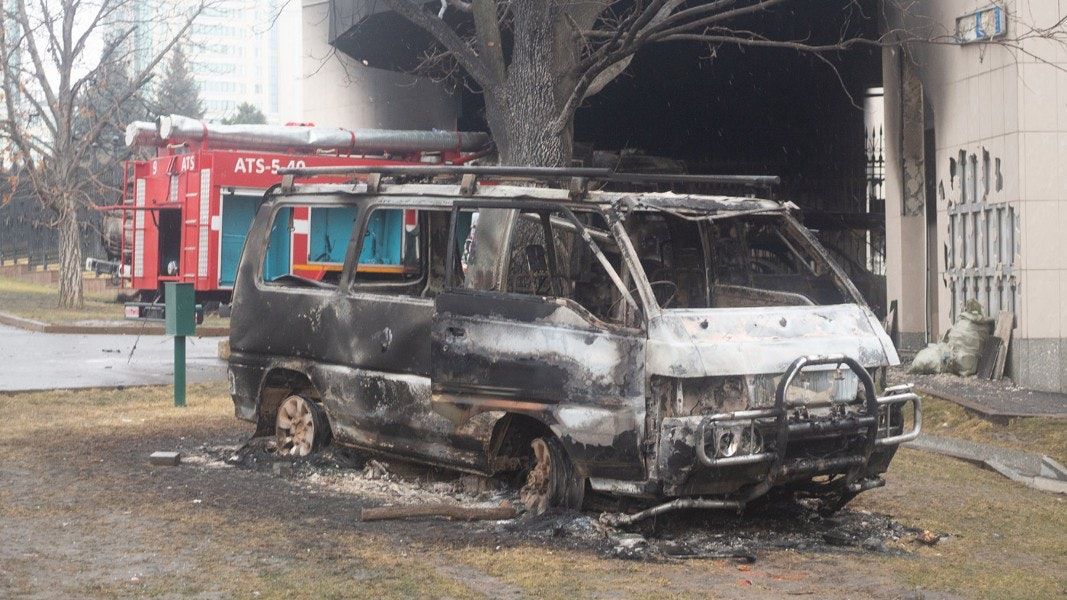
Q: What can you say about the internal dynamics of the uprising?
A: Everyone outside Kazakhstan is trying to analyze what's going on, and it's hard to do that without context, and people inside the country can't do that either because they lack complete information. I don't think even we, the residents of this country, will understand what's going on for a long time. In addition to the fact that there is no stable internet connection now, and before that there was not even mobile phone connection, all news channels are heavily censored, and the situation is only getting worse.
I won’t describe the theories that are circulating now, but they all involve different power struggles between the Nazarbayev clan and others seeking power — for example, there is a theory that Tokayev has a role in the Russian military With assistance, it is ensuring its position of power.
The scary thing about it all is that tens of thousands of people are involved in this struggle, who have good intentions to try to change the social and political conditions of this country for the benefit of all, but are now being exploited by a few to create new way of dividing the country's resources among themselves. Yes, it all started with the economic demands of workers in western Kazakhstan, who protested against a sharp increase in gas prices. These demands then turned into political demands: the resignation of the government and president, the election of mayors, and the establishment of a parliamentary republic. Some demands were met, but not all at once, and when they were ignored a wave of protests and solidarity spread to all cities in Kazakhstan, so from the outside it looked like a big revolutionary outbreak , which is unprecedented under the country’s thirty-year authoritarian system.
We can't be sure of anything now, except for one thing - the uprising had no public leaders, and the street riots and occupation of administrative buildings had no demands. But there were murders and a large number of victims among the population, who first suffered in battles with the police, then fought with each other in the streets, the police fled, and then the armed forces of Kazakhstan and the Collective Security Treaty Organization shot civilians in the streets (although They later promised society that they would now start "protecting only state facilities").
The mass media, which was allowed to continue to operate, began to tell us about so-called radicals and Islamists, using the image of "hostile foreign forces". Before that, in the first days of the protests there was a rhetoric calling for "peaceful dialogue with the protesters" - and a day later there was already an order to shoot and kill (in a speech by President Tokayev). After two days of gunfire in the streets following the entry of CSTO troops, Tokayev equated the protesters, including activists and human rights defenders, with “terrorists” and, in his words, “independent media have become a threat to social stability."
In this process of finding an enemy, the national discourse is constantly changing: yesterday this enemy was said to be bribed unemployed people from Kyrgyzstan, today it has become radicals from Afghanistan. They may never say those are the activists who have been advocating for political reform in Kazakhstan for the past three years and coming out to rallies.
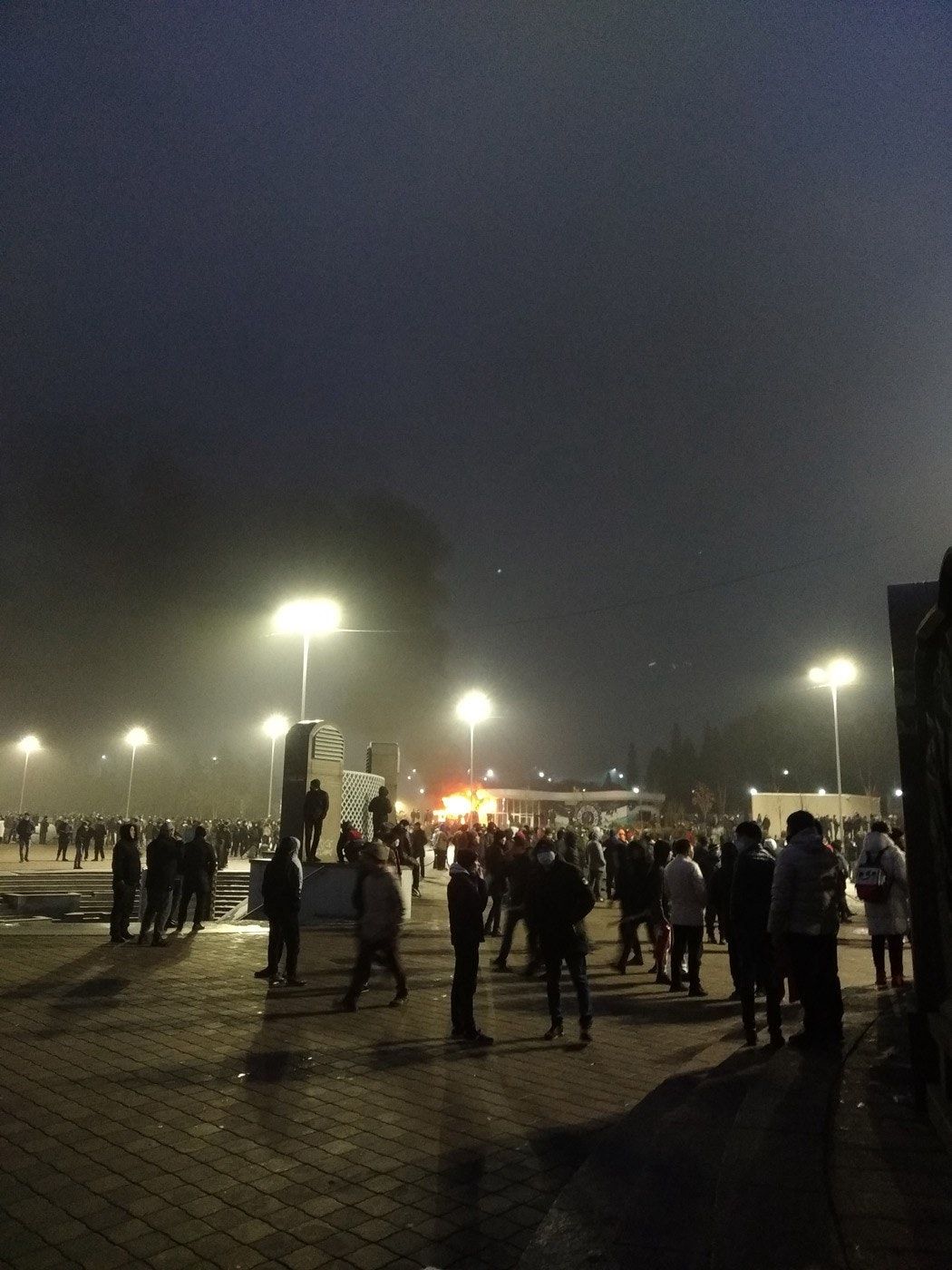
Q: Can you tell us about the crackdown?
A; Kyrgyz musician Vikram Ruzakhunov was arrested as a "terrorist" by Kazakh authorities and tortured, forcing him to record a video for a televised "confession." Now he is free.
Local independent journalist Lukpan Akhmediyarov has been arrested. Another independent journalist, Makhambet Abjan, sent a message saying that on January 5, the police came to his apartment; and now he has disappeared. My friends and many people on social media are reporting that their relatives and friends are also missing.
Officials have confirmed the deaths of hundreds of victims, including two children. Active union activists also disappeared - including Kuspan Koshgulov, Takyr Erdanov, and Amin Elishinov and their relatives.
In Almaty, a reporter from the Dozhd channel (Телеканал Дождь) was shot while simply trying to take photos at the municipal morgue.
On January 6, volunteers came to the square. Some activists carried banners reading "We are not terrorists." Police opened fire on them, killing at least one person.
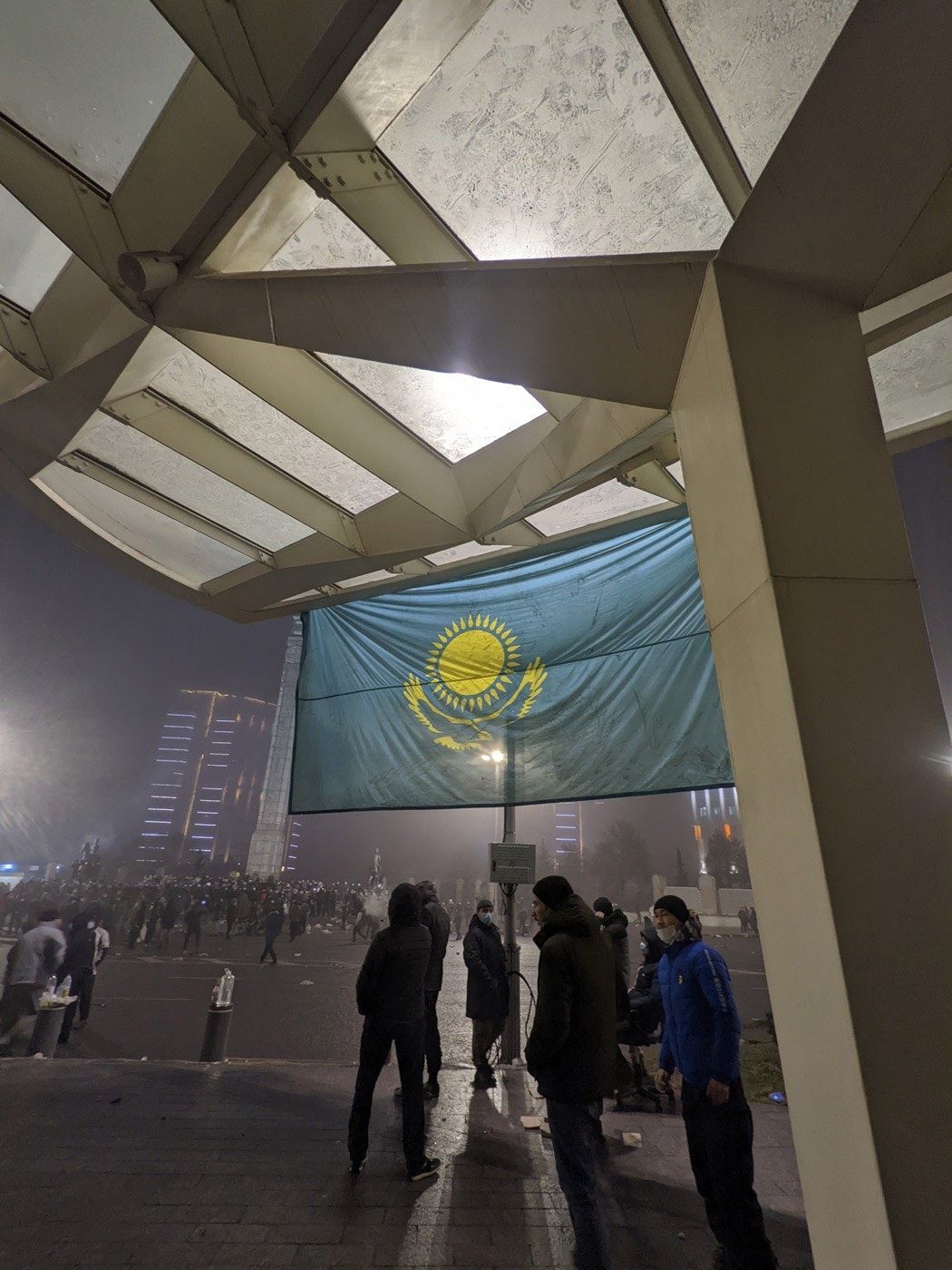
Q: How do you think the entry of Russian troops into Kazakhstan will change the situation in the long run?
A: The entry of Russian troops is very worrying. In the case of a war with Ukraine, we can imagine all the worst-case scenarios. Everyone I know agrees that this is inappropriate and we can call it an occupation.
Personally, I fear that the entry of Russian troops into the country will solidify Russia's already strong political influence in Kazakhstan, and that Kazakhstan will become like the Russia we know now, where activists are tortured and cases are trumped up . Our political opposition here has been completely suppressed and the people of this country are completely intimidated. Considering that this is the second shooting incident during protests (in 2011 and 2022) , in the history of Kazakhstan, there was also a brutal suppression of an uprising during the Soviet period in 1986, and there is no information about how many people were killed at that time , remains classified to this day... There is no hope in the near future of knowing what really happened and how many people were killed and injured. This number is likely to be in the thousands.
Q: What do you think will happen next?
A: It’s still early to imagine the results, in the context of information warfare, political propaganda and social isolation. I'm not a political expert.
To be sure, repression will now intensify. The internet and all media will be censored. Now the government is trying to put on a "good face" and act like they are the saviors who will save us from terrorists. I'm not sure if this will work. But for now, I think it's going to be quiet. People were too scared and shocked.
Q: Is there anything people outside of Kazakhstan can do to support you or others there?
A: Of course, spread the word. Perhaps there will be more repression soon and some activists will need help leaving the country.
The most important support is informational. In 2019, after the presidential elections, we were all arrested at rallies, and the only ones who could write about this were foreign media and independent Kazakhstani media (there were very few of them, and their websites were often blocked). It is very important now that Bloody January in Kazakhstan was *not* just a beautiful picture of revolution as many left-wing publications wrote, and it was *definitely not* what all the official sources from different countries said Such "terrorist acts from abroad".
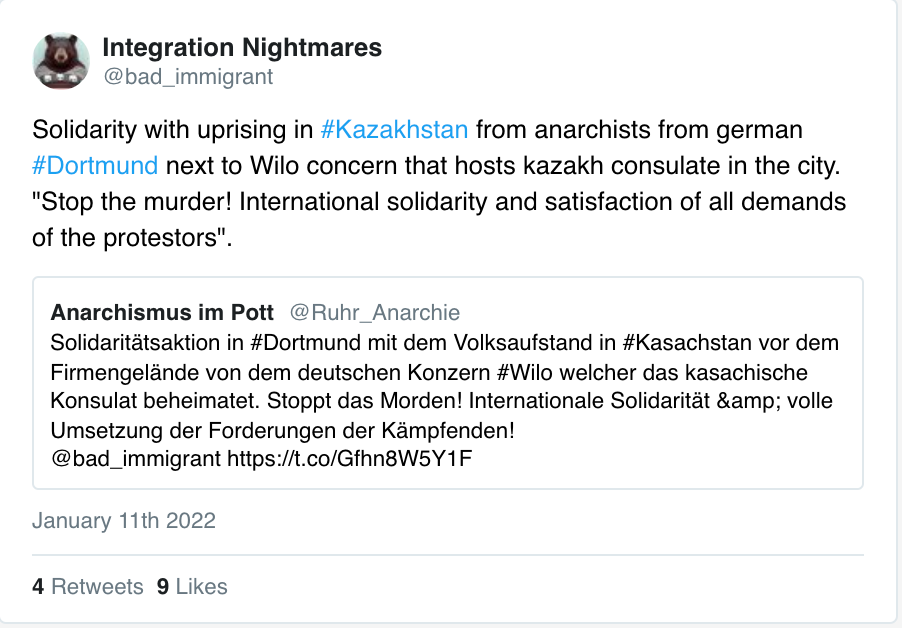
“Colonialism in the 21st Century” – a Belarusian anarchist perspective
It's only been a few days since the protests began in Kazakhstan. The demonstrators' determination soon turned the protests into a full-scale revolution against the Nazarbayev/Tokayev regime. Smashed administrative buildings, strikes and demonstrations swept the country, and by the evening of January 5, Almaty was completely free of its ruling elite.
Tokayev responded to the protesters' rapid success with shootings, assassinations and bringing troops into cities across the country. In order to maintain his power, the dictator once again began to shed the blood of his people. However, the Kazakh dictatorship, like the Belarusian dictatorship, exists within Russia's sphere of political influence. That is why, in the hours after the liberation of Almaty, there was a lot of talk about Moscow's intervention in the uprising.
First, one thinks of the Collective Security Treaty Organization, a structure that foreshadows Putin's role as a military policeman, ready to extinguish the fires of liberation arising from pro-Russian authoritarian regimes. The call for help was a formality, while the step-by-step action was likely agreed on in a phone call between Putin, Lukashenko and Tokayev.
By invading Kazakhstan amid citizen protests against the regime, Moscow showed the world that Putin viewed the CSTO countries as colonies in which the system descending from Russia would exist. Back during the 2020 protests in Belarus, many worried that Russian troops would be brought in to help Lukashenko. The dictator then took matters into his own hands while avoiding unnecessary international conflict. The protests of recent days, without outside intervention, are likely to end the regime established by Nazarbayev's clan within days or weeks.
But now a punitive expeditionary force has entered the country, precisely to stabilize the dictatorship. Any story of a return to peace and friendship is a blatant lie by Moscow’s propagandists, who seek to blame “outside forces” for organizing the protests while releasing patriotic videos of Russian troops marching into Kazakhstan.
One should not expect much outrage within Russian society against this colonial war - the repression of any political group hardly leaves room for organized protests. In Belarus, the repression is even more alarming. The only interesting case is that of Kyrgyzstan, whose parliament did not approve support for CSTO operations in the region.
Putin's actions indicate that he is prepared to support authoritarian regimes loyal to his Collective Security Treaty Organization. For ordinary people in countries where Moscow is interested, such actions threaten any attempt to build a free society. The Russian Empire remains a people's prison. And the liberation of Kazakhstan, Belarus or other parts of the former Soviet Union is a matter of urgency not only for the people of this country, but also for everyone who has to live in this empire.
We can only hope that the people of Kazakhstan will show enough determination to bring down not just Tokayev, but Putin as well.
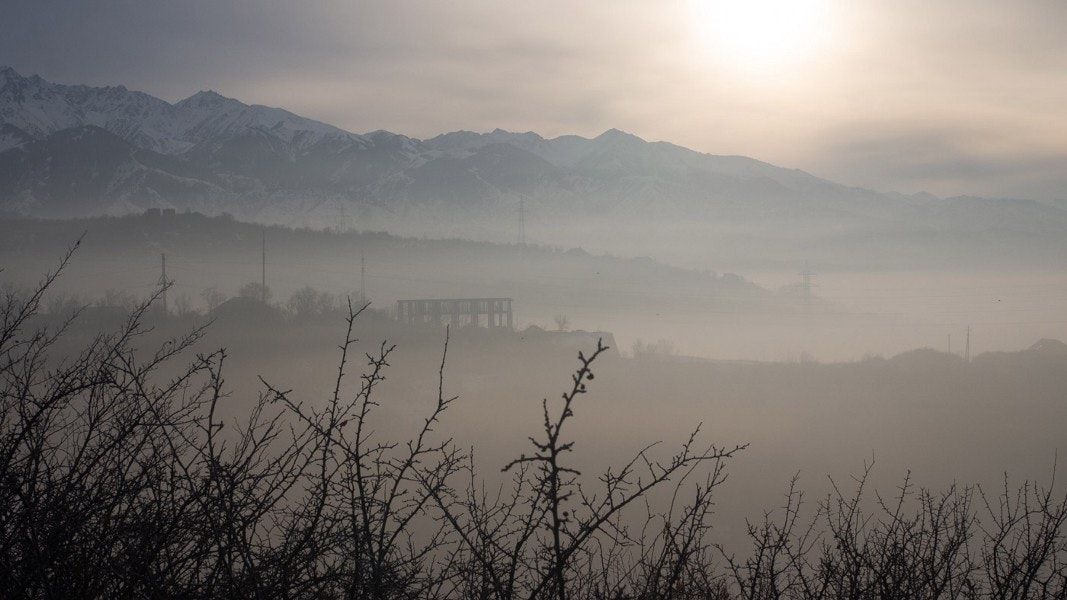
Statement by Russian anarcho-syndicalists and anarchists on the situation in Kazakhstan
We, the Russian anarcho-syndicalists and anarchists express our full and complete solidarity with the social protests of the working people of Kazakhstan!
The current outbreak of social protests in Kazakhstan is the most prominent and dazzling one in the new century. It has become the culmination of a wave of strikes by oil workers and other workers in the country, which has not stopped since last summer.
Kazakhstan’s working people are gradually recovering from the horrific massacre of proletarians organized by the Nazarbayev dictatorship in 2011 and are increasingly seeking higher wages and the ability to establish trade unions and other workers’ associations. The poverty of the majority, brutal exploitation of labor by the ruling class, rising prices, daily oppression and lack of rights make the situation of workers intolerable, forcing them to unite and join in protest actions.
The last straw was the layoff of tens of thousands of oil workers in December 2021, the implementation of a "sanitary" dictatorship under the pretext of "fighting the pandemic", and a harsh increase in gas prices. On January 3, a general strike by workers began in the Mangistau region and soon spread to other parts of the country. Clashes broke out in Almaty, Kazakhstan's former capital, between protesters and repressive forces; dozens if not hundreds of people were killed and injured. During the protests, vulnerable groups, mainly young unemployed people and internally displaced persons, carried out popular expropriations, destroying many large shopping malls, shops and bank branches. In some cases, troops refused to fire on the insurgents.
Domestic protests have been spontaneous and uncoordinated; as a result, their participants have advanced a variety of, often contradictory, slogans and demands. We, as anarchists, support above all those demands among them that have a clear and clear social orientation and that distinguish the strikes and uprisings in Kazakhstan from the numerous electoralist protests and political reformist movements of recent years. These demands were circulated at protest rallies and on social networks: cancel the increase in gas prices; increase wages by 100%; cancel the policy of raising the retirement age; take measures to solve the unemployment problem; cancel the policy of compulsory COVID-19 vaccination, lift blockades and discrimination Sexual isolation measures, etc.
In order to end the social revolt and buy time, the frightened regime was forced to make concessions: it announced a reduction in gas prices, froze the prices of "socially important" goods for 180 days, dissolved the government, and placed de facto dictator and billionaire Naza Erbayev stepped down from his post as chairman of the Security Council of Kazakhstan. But none of this helps. Occidental oil companies insist that President Tokayev restore capitalist order. The country's rulers imposed a state of emergency and curfews, banned rallies and strikes, and launched punitive actions against protesters and revolutionaries, spilling blood and arresting thousands.
At the request of the Kazakhstan regime, troops from some countries of the military-political bloc, headed by the Russian Federation, were brought into the country to suppress social protests. They were asked to fulfill the role of the gendarme of world capital, trampling the flames of social rebellion until its examples, slogans and demands spread to other countries, consumed by workers' strikes and mass protests against widespread autocracy and its apartheid regime.
We, Russian anarcho-syndicalists and anarchists, strongly condemn any suppression of the social protests of the working people of Kazakhstan, as well as the shameful counter-revolutionary foreign intervention led by the Kremlin.
We condemn any attempt by various politicians to take advantage of the social protests of Kazakh workers in order to climb to the top of power and redistribute property in their favor.
We stand firmly, resolutely and without hesitation on the side of the current social resistance in Kazakhstan and call on the working people of Russia and the world to show practical support to Kazakhstan.
Meet the social requirements of workers in Kazakhstan!
Stop the crackdown on protests in Kazakhstan!
Release all arrested protesters!
End foreign interference!
Shame on the interveners!
——Anarchist initiative StopTotalControl; CRAS Information Committee, IWA regional branch in Russia
⚪️
Declare the anarcho-syndicalist and anarchist russes in the situation au Kazakhstan
Колониализм двадцать первого века ⛓
Последствия протестов в Казахстане
Like my work? Don't forget to support and clap, let me know that you are with me on the road of creation. Keep this enthusiasm together!

- Author
- More